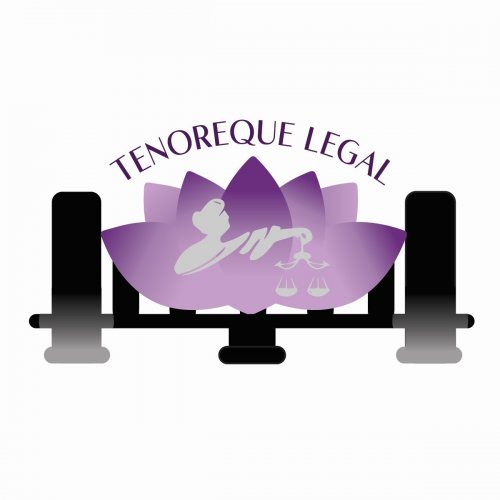Best Corporate Governance Lawyers in Trinidad and Tobago
Share your needs with us, get contacted by law firms.
Free. Takes 2 min.
Or refine your search by selecting a city:
List of the best lawyers in Trinidad and Tobago
About Corporate Governance Law in Trinidad and Tobago
Corporate governance refers to the system of rules, practices, and processes by which companies are directed and controlled. In Trinidad and Tobago, corporate governance law sets the framework for ethical business practices, transparency, accountability, and equitable treatment of stakeholders within corporations. These laws apply to all types of companies, from public companies listed on the Trinidad and Tobago Stock Exchange to private enterprises and state-owned enterprises. Effective corporate governance helps build investor confidence, attract capital, and ensure the sustainable growth of businesses in the country.
Why You May Need a Lawyer
There are several situations where seeking legal advice on corporate governance is essential for business owners, managers, shareholders, and investors in Trinidad and Tobago. Common scenarios include:
- Setting up a company and establishing board structures or governance policies
- Ensuring compliance with the Companies Act and other regulatory requirements
- Drafting or reviewing shareholder agreements and company bylaws
- Addressing conflicts of interest or disputes among directors or shareholders
- Managing risk and liability for directors and officers
- Ensuring accurate financial disclosure and reporting
- Dealing with issues relating to mergers, acquisitions, or restructuring
- Responding to regulatory investigations or enforcement actions
- Promoting transparency and best practices in family-owned or closely held entities
- Providing guidance on ethical business conduct and anti-bribery policies
A corporate governance lawyer can navigate clients through these challenges, ensuring that their actions comply with local laws and international standards.
Local Laws Overview
The legal framework for corporate governance in Trinidad and Tobago is primarily governed by the Companies Act, Chapter 81:01. It outlines directors' duties, shareholder rights, and the functioning of corporate entities. Additional relevant laws and standards include the Trinidad and Tobago Securities Act, the Financial Institutions Act, and various guidelines from the Trinidad and Tobago Stock Exchange. Principles of good governance are further promoted by local codes and best practice guidelines, especially for public companies and financial institutions. Essential elements include:
- Duties and liabilities of directors and officers
- Procedures for board meetings and decision making
- Rules relating to conflicts of interest and related party transactions
- Shareholder rights and protections
- Financial disclosure and audit requirements
- Internal control mechanisms and risk management
- Guidance on ethical conduct and accountability
Non-compliance can lead to regulatory penalties, removal of directors, qualification of financial statements, and reputational damage.
Frequently Asked Questions
What is corporate governance and why is it important?
Corporate governance refers to the system by which companies are managed and controlled. It is important as it ensures accountability, transparency, and ethical behavior, supporting the long-term success of companies.
Which laws regulate corporate governance in Trinidad and Tobago?
The main legislation is the Companies Act, Chapter 81:01. Other relevant laws include the Securities Act, the Financial Institutions Act, and rules from regulatory bodies such as the Trinidad and Tobago Stock Exchange.
What are the duties of company directors under Trinidad and Tobago law?
Directors must act honestly and in good faith, in the best interests of the company, and exercise care, diligence, and skill. They must avoid conflicts of interest and comply with statutory and fiduciary obligations.
Are there specific requirements for public companies?
Yes, public companies must comply with additional disclosure requirements, reporting standards, and governance codes issued by the Trinidad and Tobago Stock Exchange and the Securities and Exchange Commission.
How are shareholder rights protected?
Shareholder rights are protected through the Companies Act, which provides for matters such as voting rights, access to company records, and the right to attend and vote at general meetings.
What is a conflict of interest and how should it be managed?
A conflict of interest occurs when directors or officers have personal interests that could interfere with their duties to the company. Such conflicts must be disclosed, and the individual should often recuse themselves from related decisions.
What happens if a company fails to comply with governance regulations?
Non-compliance may result in regulatory action, financial penalties, disqualification of directors, or potential lawsuits by shareholders or creditors.
What role do company bylaws and shareholder agreements play?
Bylaws and shareholder agreements set out rules for company management, decision-making, dispute resolution, and the rights and obligations of shareholders. They are essential for good governance.
Are there corporate governance codes in Trinidad and Tobago?
Yes, there are codes and guidelines, especially for publicly listed companies. These are issued by bodies such as the Trinidad and Tobago Stock Exchange and aim to encourage best practices in governance.
Can a lawyer assist in setting up internal controls and compliance frameworks?
Yes, experienced lawyers can help companies develop robust internal control policies, draft codes of conduct, assess compliance risks, and train boards on their legal and ethical obligations.
Additional Resources
If you need more information or guidance on corporate governance in Trinidad and Tobago, consider consulting:
- Trinidad and Tobago Securities and Exchange Commission - Regulatory oversight for public issuers
- Trinidad and Tobago Stock Exchange - Corporate governance manuals and guidance for listed entities
- Ministry of the Attorney General and Legal Affairs - Access to relevant acts and regulations
- Financial Intelligence Unit of Trinidad and Tobago - Information on compliance and anti-money laundering
- Institute of Chartered Accountants of Trinidad and Tobago - Resources on financial reporting and auditing
- Chamber of Industry and Commerce - Training and seminars on corporate governance best practice
Many local law firms and professional bodies offer guides, templates, and workshops on improving corporate governance.
Next Steps
If you believe you need legal advice in corporate governance, consider the following steps:
- Assess your company’s existing governance framework to identify potential gaps or concerns
- Gather all relevant documentation, such as company bylaws, shareholder agreements, and recent board minutes
- Research and shortlist qualified local lawyers or law firms experienced in corporate governance matters
- Schedule a consultation to discuss your specific needs and challenges
- During your meeting, ask about their experience, fees, and approach to solving governance issues
- Follow up with any additional information needed and implement recommended changes to your governance framework
- Stay informed about updates to laws and best practices in Trinidad and Tobago
Seeking professional advice early can help mitigate risks, ensure compliance, and foster trust among stakeholders for the long-term sustainability of your company.
Lawzana helps you find the best lawyers and law firms in Trinidad and Tobago through a curated and pre-screened list of qualified legal professionals. Our platform offers rankings and detailed profiles of attorneys and law firms, allowing you to compare based on practice areas, including Corporate Governance, experience, and client feedback.
Each profile includes a description of the firm's areas of practice, client reviews, team members and partners, year of establishment, spoken languages, office locations, contact information, social media presence, and any published articles or resources. Most firms on our platform speak English and are experienced in both local and international legal matters.
Get a quote from top-rated law firms in Trinidad and Tobago — quickly, securely, and without unnecessary hassle.
Disclaimer:
The information provided on this page is for general informational purposes only and does not constitute legal advice. While we strive to ensure the accuracy and relevance of the content, legal information may change over time, and interpretations of the law can vary. You should always consult with a qualified legal professional for advice specific to your situation.
We disclaim all liability for actions taken or not taken based on the content of this page. If you believe any information is incorrect or outdated, please contact us, and we will review and update it where appropriate.
Browse corporate governance law firms by city in Trinidad and Tobago
Refine your search by selecting a city.













